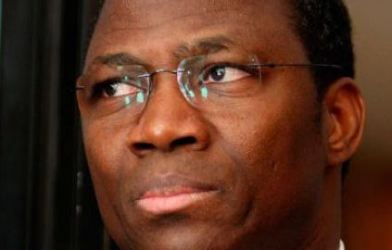Feature: When Sudanese remember Djibril Bassolé
July 25, 2016 (KHARTOUM) – Sudanese people, particularly the Darfurians, would celebrate after few days the completion of the Doha Document for Peace in Darfur (DDPD) with the participation of all those who put efforts to sealing the peace deal except the former Joint Chief AU-UN mediator Darfur Djibril Bassolé, who is currently detained in a military prison in the capital of Burkina Faso, Ouagadougou.

In November 2015; appeared in the social media recorded phone conversations Bassolé allegedly had with the president of Ivory Coast’s National Assembly, Guillaume Soro, in connection with the failed coup. The source of the recording is unknown but this didn’t prevent the government to claim that it represents the needed evidence for his involvement. The French Le Monde daily newspaper last February published an analysis of the recording by the acoustics expert Norbert Pheulpin who formally denied the authenticity of the recording.
Since, regional and international circles are exerting intensive efforts to convince the transitional government to release Bassolé or put him on trial.
The renowned diplomat has contributed to the efforts to resolve several regional conflicts in Africa and he enjoys prestigious regional and international status and wide popularity in his country which sparked jealousy among his political rivals.
During his tenure as Joint Chief AU-UN mediator for Darfur, Bassolé has earned respect and appreciation of all parties to the conflict, including those who weren’t party to the Doha peace document, who acknowledged his relentless efforts to reach a just and satisfactory solution for all.
The former Sudanese Presidential adviser who was in charge of Darfur peace file, Ghazi Salah al-Din has expressed surprise over Bassolé’s arrest, saying the man he knew closely during their joint work on Darfur peace wouldn’t seek to gain access to power through a military coup.
Speaking to Sudan Tribune, he pointed that he watched Bassolé closely and learnt about his manners and professional commitment as well as his belief in democracy and reform in African. He said “the man was an honest broker who demonstrated willingness for collective work to achieve joint goals”.
“I noticed his apparent enthusiasm to the establish good governance and democracy as basic elements to resolve the problems in the African continent” he further said
“I strongly urge the authorities in Burkina Faso to not only release him [Bassolé] but to make use of his rich experiences and abilities in multiple domains,” he added
Salah al-Din further described Bassolé as one of Africa’s wise men, saying it is our duty as Africans to stand by his side and provide him with our support.
In separate statements to Sudan Tribune, the chairman of the Justice and Equality Movement (JEM) Gibril Ibrahim has urged “the leaders of Burkina Faso to immediately free Bassolé and let him serve Africa and the international community”.
“I was honoured to work with Djibril Bassolé throughout his tenure as Joint Chief Mediator for Darfur representing both the African Union and the United Nations. Mr. Bassolé proved to be an outstanding African and international leader with unique qualities,” he said.
“He [Bassolé] travelled hundreds of thousands of miles in Sudan, the region and over the oceans in search of peace for Darfur and contributed immensely to the saving of a lot of lives. The Sudanese and the people of Darfur owe him direly,” Gibril added.
According to Ibrahim, Bassolé has brilliantly managed to maintain sound relations with both a government and its armed opponents and “succeeded in steering his ship in the troubled rocky waters of mediation without antagonizing any of the parties or humiliating himself”.
A court in Ouagadougou had earlier this year denied Bassolé’s basic right to choose his lawyers by refusing the access of foreign lawyers despite the fact the Burkina Faso has signed international and regional agreements in this regard.
However, the Court of Cassation has later annulled the military court’s ruling to refuse the foreign lawyers.
Also, on the first of this month of July, the Court of Justice of the Economic Community of West African States (ECOWAS) has brushed off the decision to prevent Bassolé from hiring foreign lawyers as illegal.
On Thursday, Sudan Tribune learnt that Ouagadougou’s government has allowed the foreign lawyers to take part in Bassolé’s defence but not date has been determined for his trial.
(ST)
